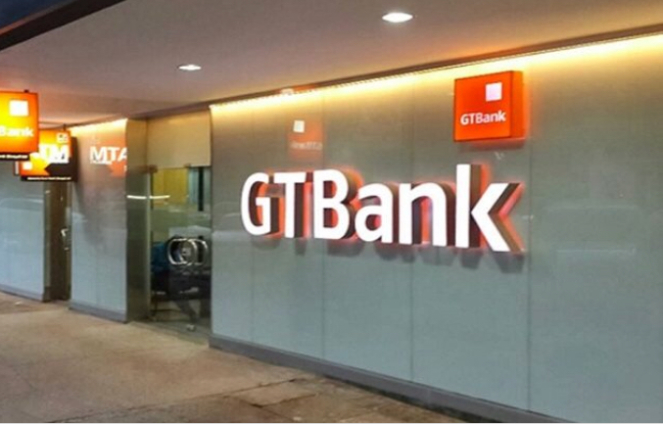Ratings agency, Fitch Ratings has affirmed Guaranty Trust Bank (Ghana) Limited's (GTB Ghana) Long-Term Issuer Default Rating (IDR) at 'B-' with a Stable Outlook.
The bank's Viability Rating (VR) has also been affirmed at 'ccc'.
According to the UK-based firm, GTB Ghana's Long-Term IDR is driven by potential support from its Nigeria-based parent Guaranty Trust Bank Limited (GTB; B-/Stable), as expressed by its Shareholder Support Rating (SSR) of 'b-'.
The Stable Outlook reflects that on GTB's Long-Term IDR. GTB Ghana's Long-Term IDR is at the same level as Ghana's Country Ceiling of 'B-', which captures Fitch's view of transfer and convertibility (T&C) risk within Ghana.
“GTB Ghana's VR of 'ccc' reflects our view that failure remains a real possibility due to high exposure to the Ghanaian sovereign ('RD') through securities. This is despite losses incurred in the sovereign domestic debt restructuring, forthcoming external debt restructuring and impending loan-quality issues being tolerable due to large capital buffers. The VR is one notch below the implied VR of 'ccc+' due to the following constraint: Operating Environment/Sovereign Rating”.
Shareholder Support Rating of 'b-'
Fitch believes GTB has a high propensity to provide support, if required, despite the sovereign default, to preserve its Ghanaian operations due to the attractiveness and contribution of the Ghanaian market to its pan-African strategy, and the reputational implications of a subsidiary default.
However, GTB's ability to provide support is limited by its own creditworthiness. Fitch does not believe the authorities will introduce controls that impede banks in servicing their external debt.
Sovereign Default
Fitch saidGhana's domestic debt-exchange programme (DDEP), which involved exchanging cedi government bonds for new bonds with significantly lower coupons and longer tenors, concluded in February 2023, inflicting large net present value losses on participating bondholders. Ghana recently restructured other domestic debt instruments and is restructuring its external debt.
Problem Loans to Rise
It said macroeconomic conditions will burden borrowers' debt-repayment capacity and lead to increased problem loans.
However, loan-quality risks are diminished by GTB Ghana's small loan book (half-year 2023: 18% of total assets), with broader asset quality being more closely aligned with the sovereign's creditworthiness.
DDEP Pressures Profitability:
It pointed out that operating returns on risk-weighted assets decreased to 5.5% in 2022 (2021: 15.9%) as a result of large impairment charges stemming from the DDEP.
Fitch considers profitability to have been supported by a low discount rate to determine the fair value of the new bonds.
Latest Stories
-
NSROMAmusic: A star that shone brighter over darkness
10 minutes -
Ghana’s Adam Bonaa appointed Chair of UN Arms Control Forum
11 minutes -
Effective national plan needed to break free from economic stagnation
17 minutes -
Sky Train scandal: Prof Ameyaw-Akumfi fails to appear in court over medical emergency
25 minutes -
The task before you is immense – Mahama to newly sworn-in NDPC members
25 minutes -
Lali x Lola appeals to Communication Minister over Boomplay issues
28 minutes -
Armwrestling Board meets CGI Basintale, sets roadmap towards sports development
34 minutes -
Greater Accra Market Association endorses AMA’s decongestion drive in Central Business District
39 minutes -
Tullow restarts oil drilling in Ghana
44 minutes -
Curttix reflects the hustle of life in new song titled ‘Paa o Paa’
53 minutes -
EXPLAINED: Thermal output rises, but $2.5bn debt to IPPs and fuel suppliers mounts
1 hour -
EGL announces “gargantuan” price reduction dubbed “Cedis Apicki” promotion
1 hour -
Strict supervision is key to driving traders off the street – Market queen
1 hour -
Coastlines in danger even if climate target met, scientists warn
2 hours -
Tanzania president warns ‘meddling’ Kenyan activists
2 hours

